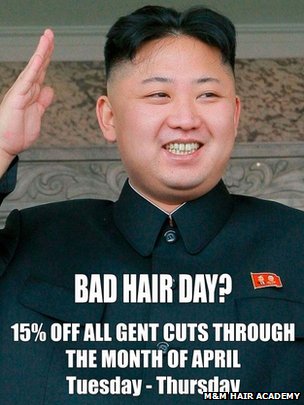Matt Waldman tries to get to the root of the problem … the problem of being a Cleveland Browns fan:
The Seahawks’ exploits have been a thrill, but I’ve never hung on every play with the same passion I did when I watched Steve McNair and company in Tennessee. You see, Titans and Seahawks fans got a taste of Han in those games, but by the time that happened I had already been marinated in it in Cleveland:
Han or Haan[1] is a concept in Korean culture attributed as a unique Korean cultural trait which has resulted from Korea’s frequent exposure to invasions by overwhelming foreign powers. Han denotes a collective feeling of oppression and isolation in the face of insurmountable odds (the overcoming of which is beyond the nation’s capabilities on its own). It connotes aspects of lament and unavenged injustice.
The minjung theologian Suh Nam-dong describes han as a “feeling of unresolved resentment against injustices suffered, a sense of helplessness because of the overwhelming odds against one, a feeling of acute pain in one’s guts and bowels, making the whole body writhe and squirm, and an obstinate urge to take revenge and to right the wrong — all these combined.”[2]
In some occasions, anthropologists have recognized han as a culture-specific medical condition whose symptoms include dyspnea, heart palpitation, and dizziness. (Wikipedia)
Whether they know it or not, the Browns are the unofficial NFL team of Korea. Cleveland embodies Han more than any team – and possibly, city (Detroit gets props) – in American sport.
It’s what happens when your team is this close to it all coming together and its spirit gets kidnapped to Baltimore.
Baltimore Colts great Art Donovan got it right when he said that he had mixed feelings about the Ravens’ arrival in Charm City. He was happy for the fans to get a team, but not at the cost of another great fan base losing theirs.
The Ravens still have the soul and guts of the real Cleveland Browns. They’re Mickey Rourke’s detective Harry Angel from Angel Heart. a war veteran kidnapped by crooner Johnny Favorite, who, to avoid paying up his side of the deal he made with the devil, performs a gruesome ritual on Angel to inhabit the detective’s body and hide from Lucifer – and himself.
[…]
I wish I could say Angel Heart only applies to Art Modell performing his satanic ritual on Cleveland and hiding in the Ravens purple and black. Then it could make DeNiro’s Lucifer the collective embodiment of vengeful Browns fans everywhere.
But I experienced my own personal horror of discovering who I was in the wake of the Browns 42nd last-minute loss since 1999: Despite 20 years of trying not deny it, I’m still a Browns fan. I’ll always be a Browns fan.
It’s not a choice. It’s part of who I am.
I had this epiphany last night while watching defeat snatched from the foot of victory against the team that made off with our mojo. Watching my shitty team lose a game to its mortal enemy that’s so deeply wounded that it’s starting an ATM for interceptions, pissed me off more than the Titans and Seahawks’ one-yard debacles in the Super Bowl.

 North Korean officials paid a visit to a London hair salon to question why it had used their leader Kim Jong-un’s picture in a poster offering haircuts.
North Korean officials paid a visit to a London hair salon to question why it had used their leader Kim Jong-un’s picture in a poster offering haircuts.

